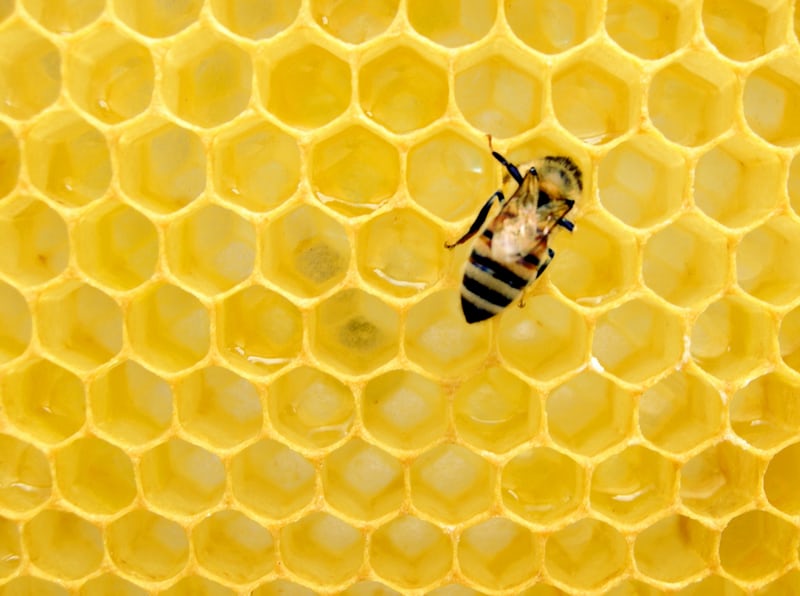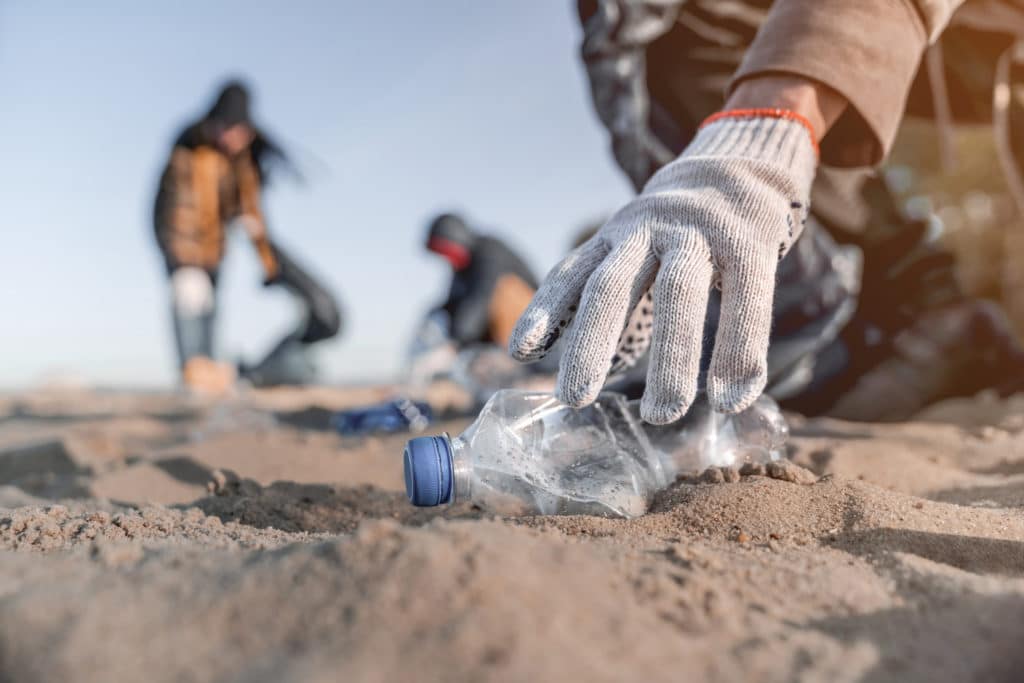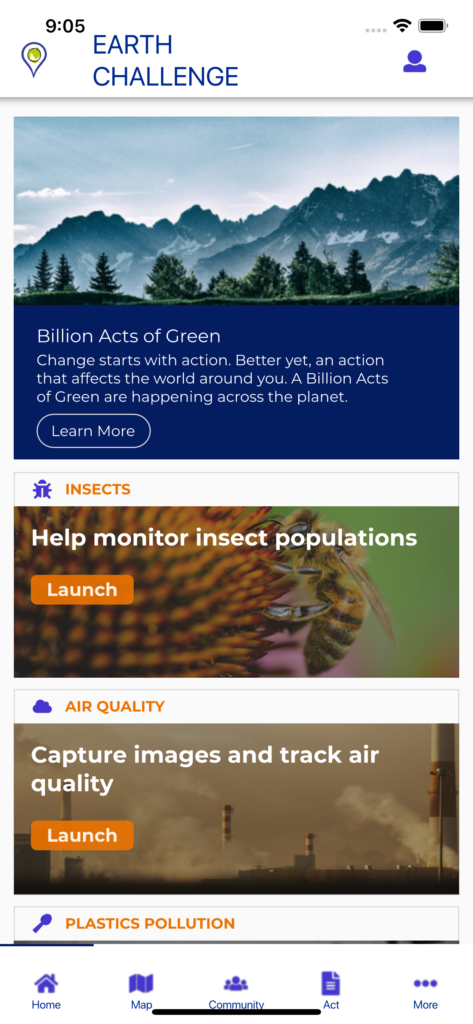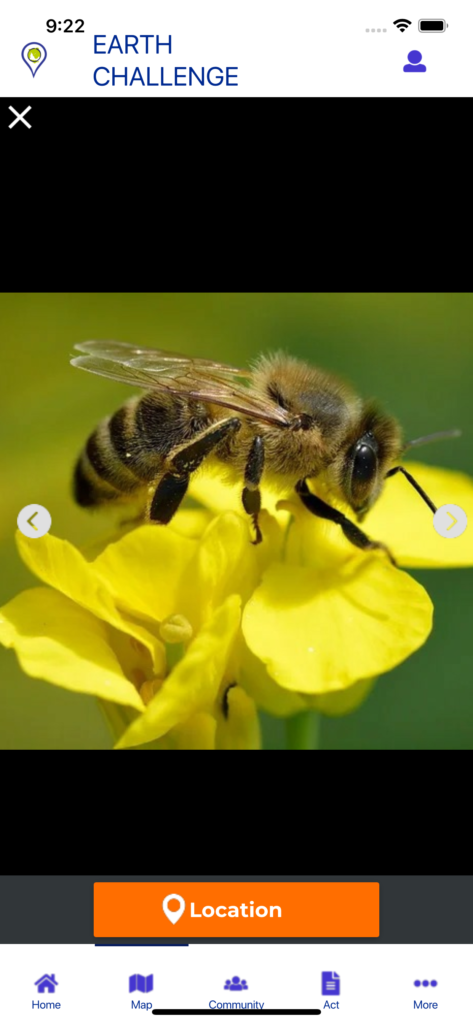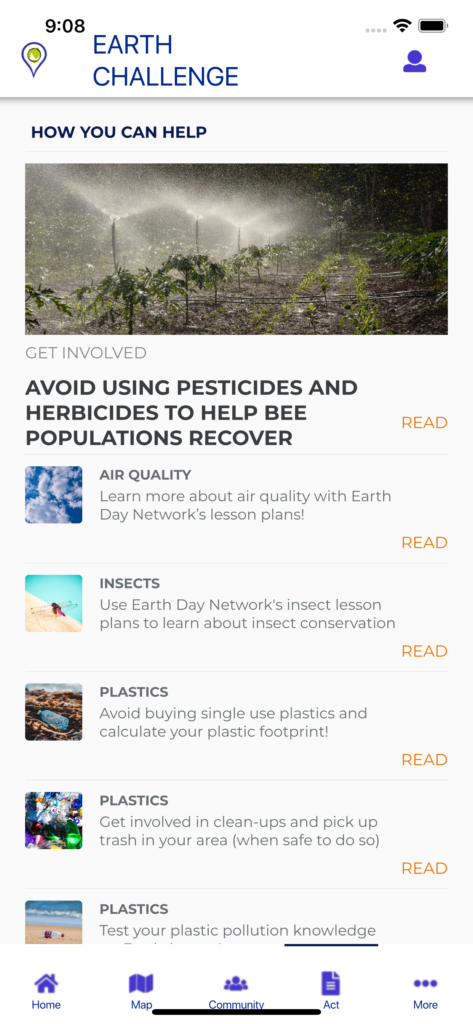Global Earth Challenge Citizen Science Application
Higher Education Toolkit
This resource was developed by EARTHDAY.ORG™ staff and George Mason University faculty to seamlessly embed the Global Earth Challenge citizen science app into higher education curriculum and campus activities. Explore below how you can incorporate citizen science into your syllabus, your club, society, or campus community.
TABLE OF CONTENTS
I. INSTRUCTIONS
II. OPPORTUNITIES FOR GLOBAL EARTH CHALLENGE INTEGRATION
- Student & Faculty Opportunities
- University Operations Opportunities:
- Student Affairs & Student Life
- General Operations
III. EDUCATOR RESOURCES
IV. LESSON PLANS
- Plastic Pollution
- Insect Decline
- Air Quality
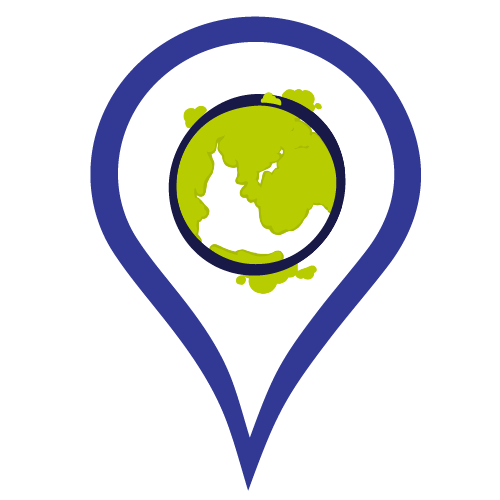
DOWNLOAD Global EARTH CHALLENGE
Be a part of the solution and build community within your institution while adding to data sets around the globe.

I. INSTRUCTIONS
EARTHDAY.ORG™ (EDO), in partnership with George Mason University’s (GMU) Office of Sustainability, is encouraging universities around the world to incorporate EDO’s Global Earth Challenge program into their curriculum and campus experience. Whether you’re a student, a faculty member, a staff member, or parent/legal guardian Global Earth Challenge is for you! Global Earth Challenge is an international citizen scientist initiative designed to collect data for air quality, plastic pollution, and insects using the respective widgets. It is an open data citizen science database that has interoperability between citizen science data sets on six Earth Challenge research questions.
Due to COVID-19, students are limited in both their academic pursuits and their options to participate in environmental conservation.
In response to the global pandemic, schools, camps and many other typical comforts are drastically different. We want to support educators and parents around the world in supplying high-quality, reliable education materials to keep students engaged, safe and learning.
We are encouraging students to focus on the air, plastics and insects widgets if done so safely. We are not encouraging anyone to use any facets of the application, or go outside, if it is not safe to do so.
Participants can download the Global Earth Challenge application from Apple’s App Store or from Google’s Play Store. You can download Global Earth Challenge wherever you’re connected to the Internet and it’s recommended you download it with your smartphone. If you’re particularly data-conscious, you can download Global Earth Challenge via Wi-Fi. Once downloaded, Global Earth Challenge can be used anywhere. The app includes an introduction to the project, and we encourage you to read the introductory slides. Additionally, each widget (air quality, plastics, and insects) contains instructions, definitions, and supplementary materials to help guide users through the process. There are also hub sites for each of the widgets to learn more about the ways data collected with Global Earth Challenge is being used to create change for people and the planet as well as other ways to get involved with the research topic.
Global Earth Challenge is different from other citizen science programs in that the data collection is just the beginning.
Our goal is that each participant also learns from the data, questions the importance of the data, and applies the data to create real-world solutions. Through suggested calls to action, sample habits, and opportunities to engage with policy, we hope that participants not only learn about local environmental issues, but become inspired to take action to address those issues and improve their community’s resilience and well-being.
The three widgets we want to focus on for this semester are the air quality, plastic pollution, and insects widgets.
DOWNLOAD THE APP
Air Quality Widget
- Submit photos of your local air quality and track how air quality varies locally.
- Take individual action and advocate for improving your local air quality.
Insect Widget
- Upload and submit a photos of insects in your area.
- Interact with the Bee campaign to help scientists track pollinator decline around the world.
- Get involved in insect population recovery around the world through individual and civic action.
Plastic Pollution Widget
- Record sightings of litter and help scientists track litter back to the source!
- Work in a group in cleanup mode to conduct and register cleanup efforts near you.
- Check out ways you can help decrease the presence of plastic in your environments.
II. OPPORTUNITIES FOR GLOBAL EARTH CHALLENGE INTEGRATION
STUDENTS & FACULTY
If your institution is already participating in EDN’s Mobilize U, encourage those members to become citizen scientists with Global Earth Challenge!
Are you interested in creating change for people and the planet? Global Earth Challenge is a perfect opportunity for you to learn while you make a difference!
Are there research centers that focus on sustainability, environmentalism, climate, or the United Nations Sustainable Development Goals? If so, then integrating Global Earth Challenge will be an excellent fit!
Faculty are encouraged to include Global Earth Challenge as part of their syllabus - either as a regular assignment or as an extra credit assignment. We have already drafted language that can be used, see “Global Earth Challenge Resources for Faculty/Instructors/Teachers” and “Tips/Tricks.”
Sustainability is an important topic to today’s students and Global Earth Challenge provides your institution with an excellent opportunity to demonstrate to new students that their institution cares about people and the planet! Global Earth Challenge could be actively promoted by the instructor(s) or integrated into the curriculum as a supplemental assignment or extra credit.
Global Earth Challenge provides students with an excellent opportunity to engage in experiential learning, data collection, and reporting as a citizen scientist which could be incorporated into required co-curricular learning, additional research projects, service learning, etc.
If you’re a faculty member and you plan to, or have, added/integrated Global Earth Challenge into your curriculum, tell your colleagues about it and encourage them to do the same.
If you’re the Provost of your institution, encourage your faculty members to promote and/or integrate Global Earth Challenge into their curriculum. If you’re not the Provost, you can chat with your Provost and encourage them to share information about Global Earth Challenge with faculty at your institution.
OPERATIONS
Student Affairs & Student Life
Global Earth Challenge could be used as an orientation activity for students since students can engage with the app completely virtually and also collect and report data on their own time.
If your institution provides students with opportunities to engage in community service and/or requires students to complete a certain number of community service hours, encourage students to download the Global Earth Challenge app and log the number of hours spent collecting citizen-science data which could then count as community service hours!
- Student government members are elected and respected student leaders of the campus community who could use their position to model the adoption and use of Global Earth Challenge while encouraging their fellow students to do the same.
- If the elected members of student government are required to complete a certain number of community service hours, a specific project, etc. then the faculty/staff advisor for student government could integrate Global Earth Challenge into this requirement.
- Far too often, graduate students feel left out or forgotten as members of the campus community. Global Earth Challenge presents an excellent opportunity to encourage graduate student participation and engagement with an institutional initiative.
- Graduate students (through their senate or relevant association) could further demonstrate their leadership by adopting and using Global Earth Challenge while encouraging others to do the same. Since many graduate students are actively engaged in research, Global Earth Challenge, with its emphasis on citizen-science and using data to drive decisions for people and the planet, is an excellent fit.
- Graduate students can talk with their faculty advisor(s) about opportunities to integrate Global Earth Challenge into their research or coursework or may even be interested in becoming more involved on the research review team for Global Earth Challenge.
RSOs are well known for hosting fun, exciting, and educational events for their members and the campus community. RSOs could encourage their members to adopt and use Global Earth Challenge while also hosting virtual events for the campus community to participate in.
RHA primarily focuses on the on-campus living experience for students and often hosts programs, events, and activities for the campus community. RHA could encourage its members to adopt and use Global Earth Challenge while also hosting virtual events for the campus community to participate in.
If your institution already has student groups that are well known for their engagement with “green,” sustainability, climate, or environmental issues then they’re excellent groups to promote Global Earth Challenge to. If they’re required to complete a specific number of community service hours, they could use their participation in Global Earth Challenge to count towards or supplement their service hours.
General operations
Global Earth Challenge is an excellent opportunity for Resident Assistants, Peer Mentors, Community Directors, Residence Directors, etc. to incorporate the app into their programming and events. Staff members in Housing & Residence Life could integrate Global Earth Challenge into their Residential Curriculum, Experiential Learning Model, or other programming/learning model.
Although participation in Global Earth Challenge is not an internship per say it provides participants with a unique feature for their resume and application materials - participation in a global, citizen science initiative!
This is a great initiative to encourage members of your campus community to participate in, as it clearly demonstrates how local issues are intertwined with global issues. Furthermore, it provides participants with an opportunity to contribute to a database of information used by scientists all over the world to inform and address climate-related issues and challenges.
This department might be particularly interested in participating given the focus of their work.
Institutions could invite their employees (whether student employees, faculty, or staff) to participate in Global Earth Challenge, especially if the institution is adopting or promoting participation for their students. This is a great way to help employees feel connected to the institution while building a positive culture of engagement, learning, and positive impact!
Institutions could invite their community partners to participate in Global Earth Challenge, especially if the institution is adopting or promoting participation for their students, faculty, and staff. This is a great way for an institution to strengthen its relationship with community members and key stakeholders.
Institutions could encourage their corporate partners, sponsors, and key stakeholders to adopt or promote participation of the Global Earth Challenge app. This is a great way for corporate partners and key stakeholders to demonstrate that they are committed to sustainability as well as the key issues that matter to the institution.
Institutions could invite their alumni to participate in Global Earth Challenge, especially if the institution is adopting or promoting participation for their students, faculty, and staff. This is a great way for an institution to remain connected with their alumni while also making a positive difference!
III. EDUCATOR RESOURCES
a. GENERAL
- Research Questions: learn more about the research questions driving Global Earth Challenge and the citizen science data collection.
- Research Community: learn more about the process that went into developing Global Earth Challenge as well as the research teams all over the world engaged with and supporting Global Earth Challenge.
For use with Earth School and EDO’s partnership with UNEP. We were featured on the citizen science day- Quest 26
This toolkit is designed for educators, parents or motivated students who want to explore ways to learn more about the local impacts of climate change and what it means to be an active participant in community civic action. This resource is very flexible to best suit your needs: the activities can be done all together or spread out over time for year-round climate exploration.
Videos outlining use of the app and important features.
Database containing all citizen science data collected with the Global Earth Challenge app for researchers to search, visualize, and download data and for participants to browse.
Sample Syllabus Language
Global Earth Challenge: Participate in the Earth Day Network’s Global Earth Challenge which is an international, citizen scientist initiative designed to collect data about air quality and plastics. You can participate in Global Earth Challenge from wherever in the world you are just by downloading the application from Apple's App Store or from the Google Play Store*. Once you’ve done that, you’re all set to begin collecting data! For our class, you’ll need to make at least [number of submissions] of “[data type]” submissions during the [time frame accepting submissions, ex. semester or specific weeks, months]. Additionally, you will need to [instructions explaining how students will prove that they made submissions via Global Earth Challenge]. Completing the Global Earth Challenge Extra Credit assignment will [explain how completing this extra credit assignment earns the student extra credit points ex. max 2 points added to their total grade, drops the lowest quiz score, adds 10 points to the lowest test grade, adds 5 points to their mid-term/final grade, etc.].
- Please remember: NO data point or class assignment is worth
your health, safety, and well-being.
I want you to earn extra credit only from a safe location. If you’re unable to complete this extra credit opportunity from wherever you’re currently social distancing and self-isolating, please let me know [contact information for instructor] know as soon as possible. Your safety, health, and well-being are of paramount importance; do NOT do anything that would put you or others at risk.
- *If you don’t have access to a smartphone or your smartphone does not function with the Global Earth Challenge application, please let me know [contact information for instructor] so a comparable opportunity for extra credit can be offered.
Global Earth Challenge: Participate in the Earth Day Network’s Global Earth Challenge which is an international, citizen scientist initiative designed to collect data about air quality and plastics. You can participate in Global Earth Challenge from wherever in the world you are just by downloading the application from Apple's App Store or from the Google Play Store*. Once you’ve done that, you’re all set to begin collecting data! For our class, you’ll need to make at least [number of submissions] of “[data type]” submissions during the [time frame accepting submissions, ex. semester or specific weeks, months]. Additionally, you will need to [instructions explaining how students will prove that they made submissions via Global Earth Challenge, see “Tips/Tricks” for sample assignments]. Completing the Global Earth Challenge assignment will [explain how completing this assignment impacts the student's course grade].
- Please remember: NO data point or class assignment is worth
your health, safety, and well-being.
I want you to complete this assignment only from a safe location. If you’re unable to complete this assignment from wherever you’re currently social distancing and self-isolating, please let me know [contact information for instructor] know as soon as possible. Your safety, health, and well-being are of paramount importance; do NOT do anything that would put you or others at risk.
- *If you don’t have access to a smartphone or your smartphone does not function with the Global Earth Challenge application, please let me know [contact information for instructor] so a comparable assignment can be offered.
- If a student doesn’t have a smartphone or their smartphone isn’t compatible with the Global Earth Challenge application:
- You can have the student use AirNow to “collect” air quality data through the use of the website. The student can input their US zip code and receive detailed information about the current air quality for that location. For proof of their participation, the student can take screenshots of the air quality report provided by AirNow which can be submitted via email or online learning portal (such as BlackBoard) or included in a reflection paper, essay, PowerPoint, or similar assignment.
- From their website: “AirNow is a partnership of the U.S. Environmental Protection Agency, National Oceanic and Atmospheric Administration (NOAA), National Park Service, NASA, Centers for Disease Control, and tribal, state, and local air quality agencies.”
- For the “regular credit” assignment, there are many different opportunities for assignments students could complete. Here are a few examples:
- Reflection Paper:
“You’re required to submit a reflection paper of 250-500 words about your experience participating in Global Earth Challenge which will also explore how citizen-science initiatives are a force for positive change for people and the planet.”
- Slide Deck Presentation:
“You’re required to create a PowerPoint (or similar software tool such as Google Slides) presentation of 10-12 slides about your participation in Global Earth Challenge which will also explore how citizen-science initiatives are a force for positive change for people and the planet.”
- Creative Work:
“You’re required to create a creative work (video recording, spoken word performance, dramatic rendering, painting, collage, etc. - the only limit is your imagination!) that is reflective of your experience participating in Global Earth Challenge and also explores how citizen-science initiatives are a force for positive change for people and the planet.”

DOWNLOAD THE APP

IV. LESSON PLANS
Discover more about the global plastic pollution problem and use lesson plans that center around this topic while integrating Global Earth Challenge as an interactive resource.
Learn about the ecosystem services insects provide and use our activities and resources to help educate students on the most pressing threats insects face.
Develop an understanding of the causes of bad air quality, how it affects people and our environments and learn what scientists are doing to combat these issues.

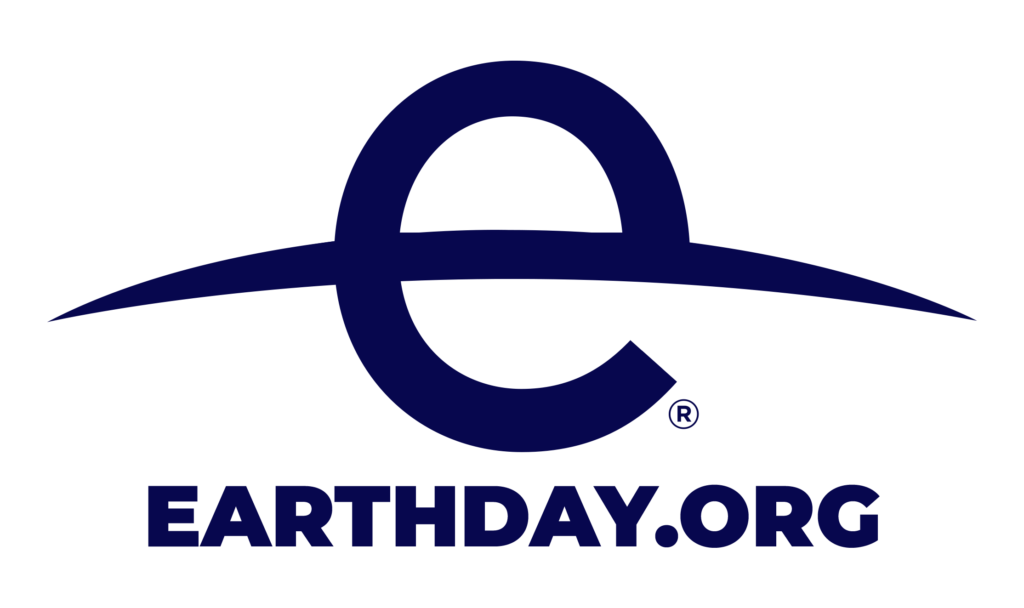
This resource was created by EARTHDAY.ORG in partnership with George Mason University's Office of Sustainability and developed by Benjamin Auger, Terra Pascarosa, Tracey Ritchie, and Katie Wood.
This toolkit was last updated November 2020.

